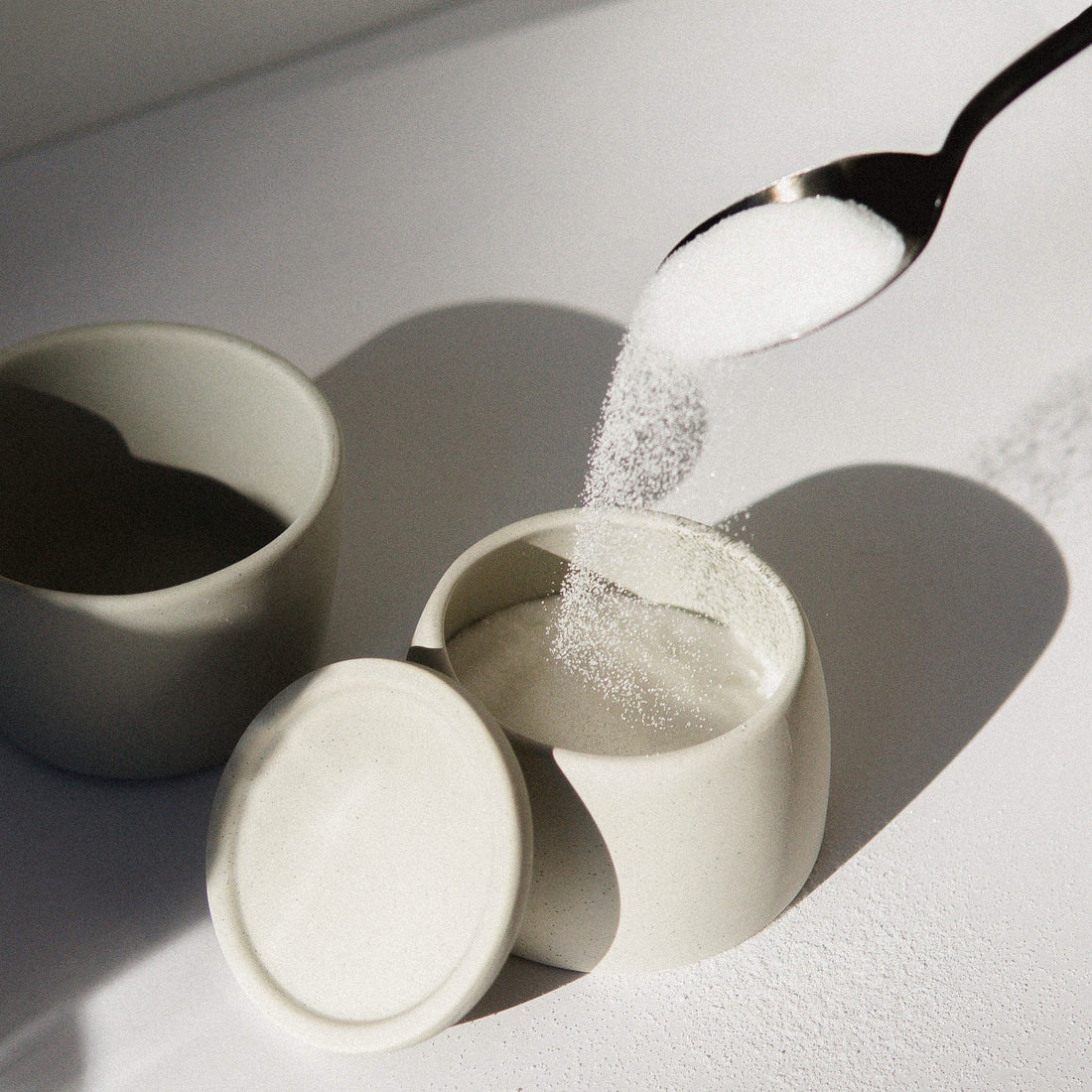
The Bitter Truth About Sucralose: Unraveling the Risks
Share

Are you one of the many who opt for artificial sweeteners, believing they're a guilt-free way to satisfy your sweet cravings? Sure, short term they might do the trick. But the potential long term risks associated with artificial sweeteners are not so sweet. Let’s dive into the world of artificial sweeteners & their potential risks, focusing on one very popular protagonist in particular: Sucralose.
Understanding Sucralose
Sucralose is a synthetic sweetener that’s approximately 600 times sweeter than table sugar, and known by many in the U.S. under the name brand Splenda. It's used in thousands of products, from baked goods to beverages (don’t worry, not Pureboost!) and even chewing gum. This high-intensity sweetener is designed to satisfy your sweet tooth without the calories. However, recent studies have raised some concerns about the safety of sucralose consumption, particularly when it passes through the body and becomes Sucralose-6-Acetate.
What’s Sucralose-6-Acetate?
Sounds like a sci-fi concept, but it’s a molecule that can be formed when sucralose, the artificial sweetener, interacts with certain gut bacteria. It's not an ingredient you'll typically find listed on a product's label, but it's a byproduct that may exist in small amounts in some commercial sucralose products due to the manufacturing process.
While sucralose itself may have gained regulatory approval based on the assumption that it passes through your body unchanged, sucralose-6-acetate is the unsettling twist in the story. When this compound was studied, researchers discovered it could cause breaks in DNA, potentially increasing the risk of cancer or other health problems.
The Risks of Sucralose
DNA Damage: Yep, you read that right. Recent research has uncovered that sucralose, particularly when transformed into sucralose-6-acetate, has the potential to cause breaks in your DNA. This damage could potentially increase the risk of cancer and other health problems.
The Leaky Gut Syndrome: Sucralose-6-acetate doesn't stop at DNA; it's also been linked to the notorious "leaky gut" syndrome. This condition can allow harmful substances to escape from your gut and enter your body, potentially leading to inflammatory bowel disease and chronic liver problems.
Inflammation and Cancer: Studies have indicated that both Sucralose-6-acetate and regular sucralose might lead to increased activation of genes associated with inflammation, oxidative stress, and cancer in human intestinal tissue.
Seeking Safer Sweetening Solutions
With these risks in mind, you're probably wondering how to satisfy your sweet tooth without compromising your health. Here are our suggestions for healthier alternatives:
Embrace Natural Sweeteners
Consider opting for natural sweeteners like stevia or monk fruit. These alternatives offer sweetness without the potential risks associated with artificial sweeteners. We’re a big fan of natural sweeteners at Pureboost!
Gradual Sweetening Reduction
Tackle the sweet tooth directly. Begin your journey to better health by gradually reducing your reliance on overly sweet foods. Cut your sweeteners in half, and your taste buds will adapt over time. Your body will thank you, and you might even find that regular ol’ fruits and veggies start to taste better.

Conclusion
Your health is a treasure, and your choices matter. Sucralose, once deemed a harmless sugar substitute, now raises valid concerns about DNA damage, leaky gut, inflammation, and cancer risks. While further research is needed, it's wise to approach artificial sweeteners with caution.
At Pureboost, we're committed to your well-being, which is why we never use sucralose or other artificial sweeteners in our products. We're dedicated to bringing you clean, feel-good energy drinks that satisfy your sweet tooth without compromising your health so you don’t have to choose between the two. It’s the best of both worlds.
Sources:
https://www.tandfonline.com/doi/full/10.1080/10937404.2023.2213903